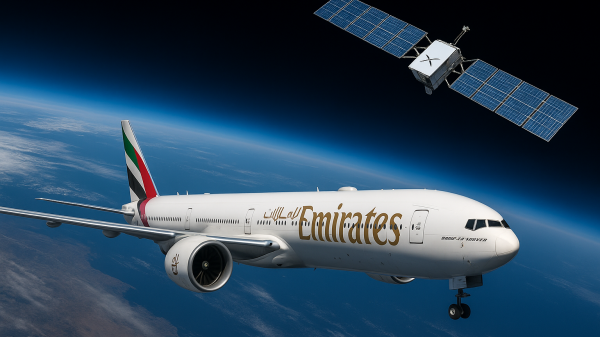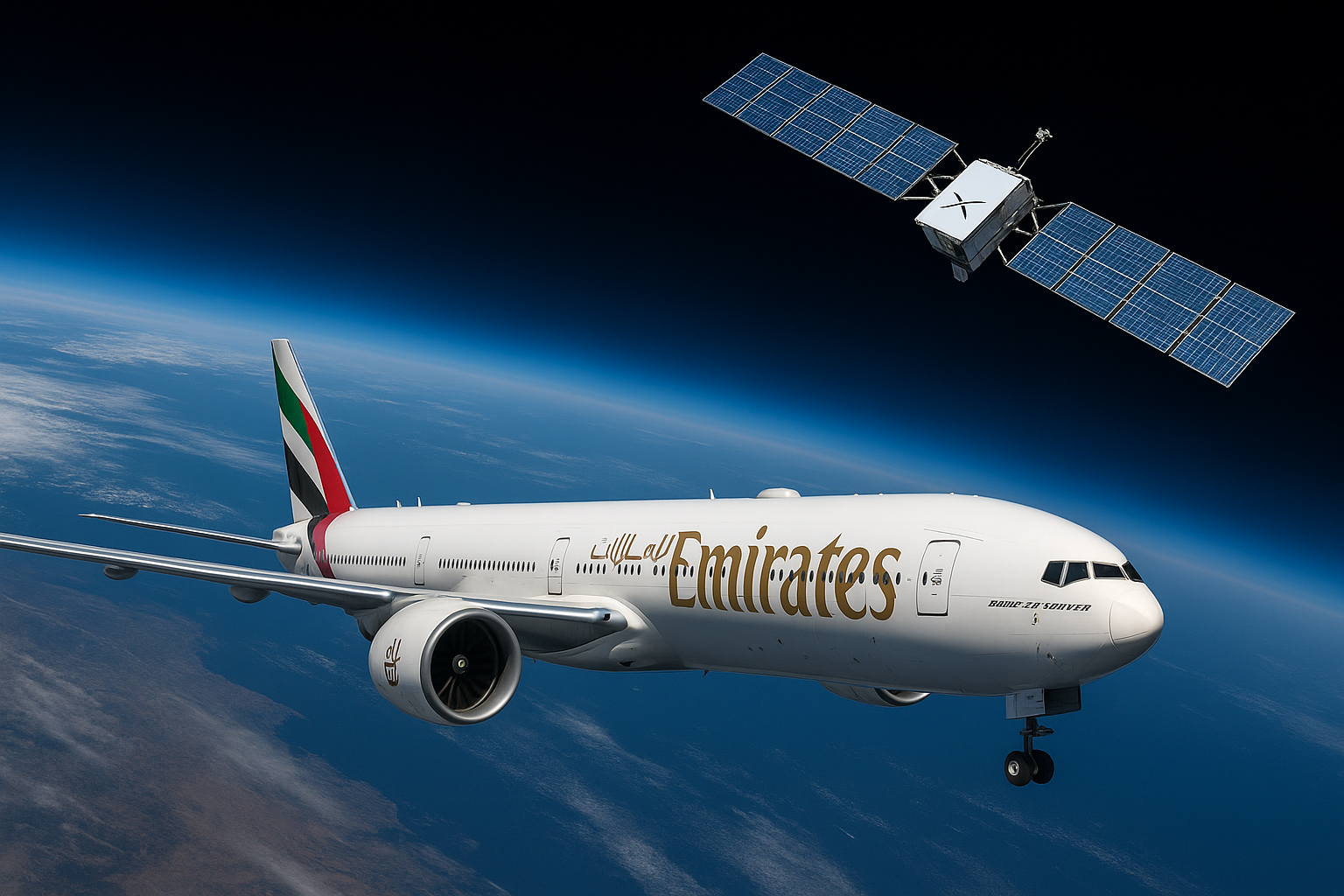Emirates is preparing to transform its in-flight internet experience by partnering with SpaceX’s satellite service Starlink, reported Bloomberg.
The move could position the Dubai-based airline as a global leader in onboard connectivity.
However, the deal depends on regulatory clearance from the United Arab Emirates, which has not yet authorised Starlink’s operations.
Despite this limitation, the agreement is expected to be revealed at the upcoming Dubai Air Show, highlighting the airline’s strategic push to stay ahead in passenger technology.
Regulatory block stands in the way of rollout
While Emirates prepares to launch Starlink internet across its widebody fleet, the service is currently not approved for use in the UAE.
According to Starlink’s official availability map, the country does not yet permit operations.
Any agreement would require a policy shift by the UAE government before installations could begin.
The lack of authorisation poses a critical challenge.
Emirates cannot deploy Starlink on any aircraft until it receives regulatory clearance.
That includes the airline’s flagship Airbus A380, which does not yet have the necessary certification for the service.
Without approvals, both from the UAE and aviation regulators, the high-speed satellite internet cannot be installed.
Emirates operates around 250 widebody aircraft and has placed orders for more than 300 jets from Boeing and Airbus.
That scale makes the airline one of the most attractive customers in global aviation for in-flight tech suppliers.
If authorised, Emirates’ adoption of Starlink could mark a turning point for satellite-based connectivity in the industry.
Rivals in the region move faster with Starlink
While Emirates waits for approval, regional competitors have already taken the lead. Qatar Airways became the first airline in the Gulf to install Starlink in 2024.
It currently offers the service on Boeing 777s and is retrofitting Airbus A350 aircraft.
The Gulf’s second-largest carrier has outpaced Emirates in the race for next-generation connectivity.
In Saudi Arabia, Saudia signed a deal with SpaceX earlier this year.
Elon Musk earlier stated that during US President Donald Trump’s May visit to Riyadh, Saudi Arabia agreed to allow Starlink for aviation and maritime services.
Other countries in the Middle East have also opened their skies to Starlink.
Bahrain and Jordan already allow the satellite system to operate, and Lebanon’s cabinet has issued a licence for internet services using the network.
The pace of approvals across the region underscores the UAE’s delay in adopting the technology.
Starlink targets Gulf with multiple airline pitches
SpaceX has made a strong push into the Middle East aviation market.
In addition to Emirates, the company has pitched Starlink to Flydubai and Gulf Air.
The deal with Emirates, however, would be the most significant in terms of scale and brand recognition.
If finalised, it would offer a major endorsement of Starlink’s capabilities in commercial aviation. Emirates is known worldwide for its premium service, and its use of satellite Wi-Fi would likely influence other carriers to consider similar upgrades.
The partnership could help establish SpaceX as a dominant force in in-flight connectivity.
The Dubai Air Show, beginning Monday, is expected to host the formal announcement.
The event brings together key players from the global aerospace industry and serves as a launchpad for strategic deals and tech partnerships.
Certification still pending for Emirates A380s
Even if UAE regulatory hurdles are cleared, Emirates must still obtain certification for Starlink to operate on its aircraft. The Airbus A380, a cornerstone of Emirates’ long-haul service, is not yet certified for the satellite system.
Certification from relevant aviation authorities will be necessary before any deployment can begin.
The post Emirates bets on SpaceX’s Starlink for global Wi-Fi lead: report appeared first on Invezz


































